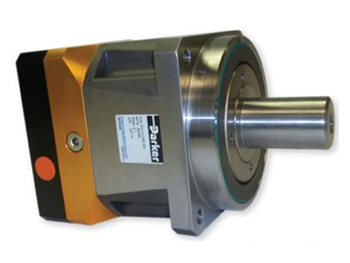Mobile:+86-311-808-126-83
Email:info@ydcastings.com
hydraulic impeller
Understanding Hydraulic Impellers Key Components in Fluid Mechanics
Hydraulic impellers play a vital role in the field of fluid mechanics, particularly in systems that require the conversion of mechanical energy into fluid energy. These components are primarily used in pumps, turbines, and other machinery designed to move liquids and gases. Understanding the design, function, and applications of hydraulic impellers is essential for engineers and technicians working in various industries, including manufacturing, construction, and water management.
What is a Hydraulic Impeller?
A hydraulic impeller can be defined as a rotating component that imparts energy to a fluid. Typically found in centrifugal pumps and hydro turbines, the impeller's primary function is to convert the kinetic energy generated by rotation into pressure energy within the fluid. This process occurs as the impeller blades push the fluid outward, usually in a radial direction. The velocity gained by the fluid during this process leads to an increase in flow rate as it exits the impeller.
Design of Hydraulic Impellers
The design of hydraulic impellers is crucial for achieving optimal performance. Several factors contribute to the efficient operation of an impeller, including shape, size, number of blades, and material. The two most common types of hydraulic impellers are
1. Open Impellers These designs consist of blades that are not enclosed by a hub or casing. Open impellers are typically easier to clean and maintain, making them ideal for applications involving viscous fluids or slurries.
2. Closed Impellers Closed impellers have blades sealed between two disk-like structures, forming a chamber that enhances efficiency. These are preferred for applications that require high pressure and flow rates.
The choice between open and closed impellers depends on the specific requirements of the application, including the type of fluid being moved, the required pressure, and the potential for debris within the fluid.
Working Principles
hydraulic impeller

The operation of a hydraulic impeller can be explained through the principles of fluid dynamics. When the impeller rotates, it creates a low-pressure zone at its center, allowing fluid to flow into the impeller from the intake. As the impeller continues to rotate, the blades push the fluid outward, causing it to accelerate and gain kinetic energy.
This acceleration translates into increased pressure as the fluid exits the impeller and enters the volute or diffuser, where the flow is directed toward the desired outlet. The conversion of kinetic energy into pressure energy is fundamental in applications such as water supply systems, irrigation, and industrial processes.
Applications of Hydraulic Impellers
Hydraulic impellers are widely used across various industries, reflecting their versatility and efficiency. Some key applications include
- Water Supply Systems Impellers are essential in municipal water supply and wastewater treatment facilities, where they help pump water through pipelines.
- Hydroelectric Power Generation In hydroelectric plants, hydraulic impellers are integral to turbines that convert the energy from flowing water into electrical energy.
- Agricultural Irrigation Impellers optimize the movement of water to irrigate crops, ensuring efficient water distribution across farmland.
- Marine Applications In vessels, hydraulic impellers facilitate the movement of water for propulsion and cooling systems, allowing ships to operate effectively.
Conclusion
Hydraulic impellers are pivotal components in a wide range of fluid systems. Their ability to convert mechanical energy into fluid energy makes them indispensable in numerous industrial applications. Understanding their design, operating principles, and various applications helps engineers and technicians optimize their use for specific needs. As industries continue to evolve and innovate, the importance of hydraulic impellers will remain significant in efficient fluid management and energy conversion processes. By advancing the science of impeller design and application, we can improve the efficiency of systems that rely on fluid dynamics, paving the way for more sustainable and effective technologies.
-
Why Should You Invest in Superior Pump Castings for Your Equipment?NewsJun.09,2025
-
Unlock Performance Potential with Stainless Impellers and Aluminum End CapsNewsJun.09,2025
-
Revolutionize Your Machinery with Superior Cast Iron and Aluminum ComponentsNewsJun.09,2025
-
Revolutionize Fluid Dynamics with Premium Pump ComponentsNewsJun.09,2025
-
Optimizing Industrial Systems with Essential Valve ComponentsNewsJun.09,2025
-
Elevate Grid Efficiency with High-Precision Power CastingsNewsJun.09,2025











